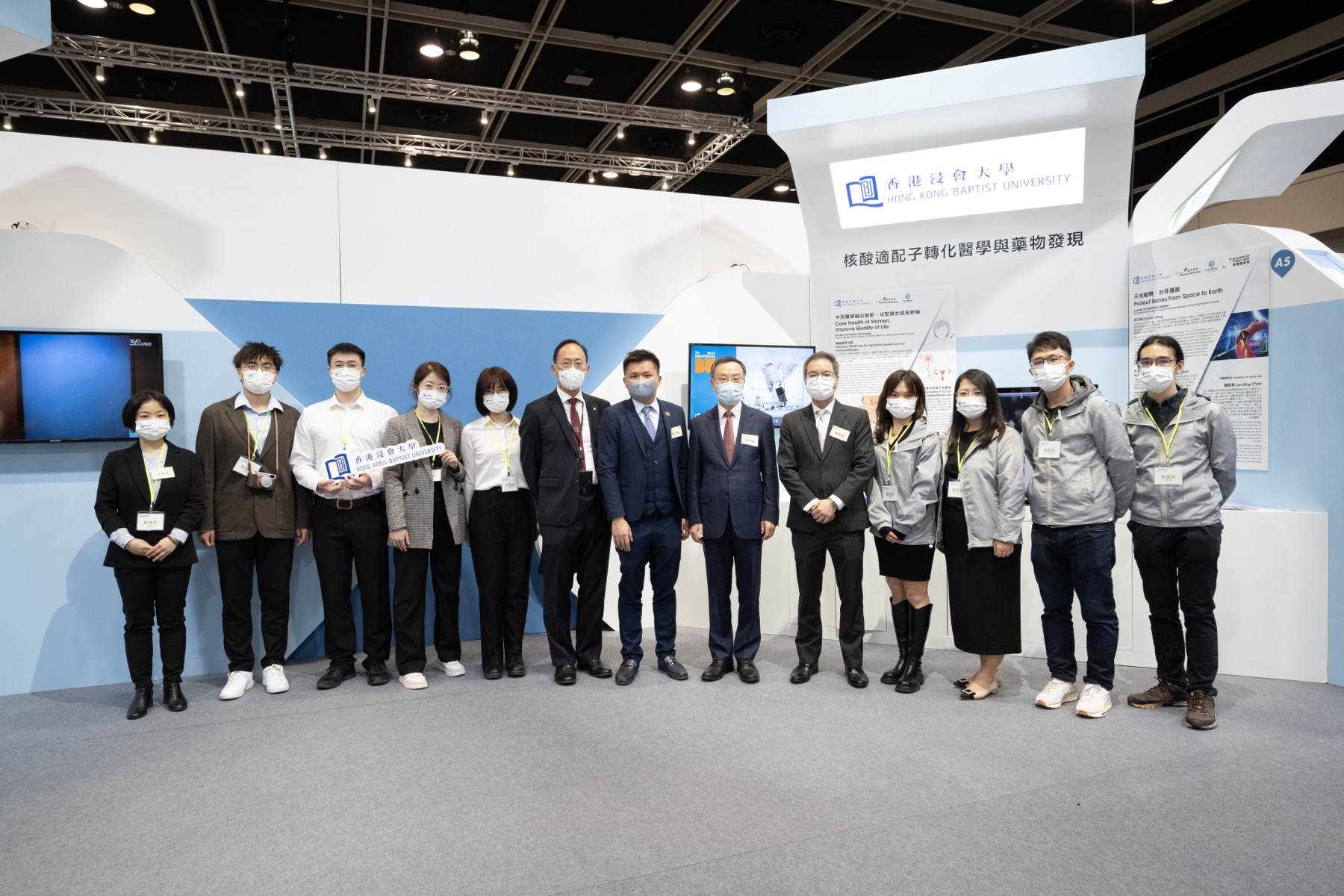Previous Events
HKBU showcase scientific outcomes during InnoTech Expo 2022
To celebrate the 25th anniversary of Hong Kong's return to the Motherland, Our Hong Kong Foundation specially formed an Assessment Panel composed of experienced scientists from various universities in Hong Kong to select 25 outstanding and representative scientific research projects among 50 nominated projects to be exhibited at InnoTech Expo 2022.
4 projects from HKBU were selected by the panel for showcasing:
New-Generation Semiconductors Serving for Smart Society
Project-in-charge: Dr ZHOU Yuanyuan, Assistant Professor, Department of Physics
The perovskite semiconductor is a disruptive technology that will transform the conventional semiconductor industry across the materials manufacturing to devices. Perovskite semiconductor is unique in serval aspects, it can be fabricated into thin films using solution-printing based processes, meaning that it can be created in large amount in high speed. Also, it can be made into various type of devices serving for different functions, including solar cells, light-emitting devices, and memristors. Perovskite semiconductor can even be a family of materials including versatile organic and inorganic compositions.
Space to Breathe: ARIA
Project-in-charge: Dr Eugene Birman, Assistant Professor, Department of Music
"Space to Breathe" is an interdisciplinary project that aims to raise awareness about the global issue of air pollution through the collaboration of art and science. Through immersive exhibitions and vocal performances, the project creatively presents information and ideas related to air pollution and the environment. By analysing social media comments on air pollution, the team integrated scientific findings into a libretto and composed a score that reflects local air pollution data. The site-specific approach allows the music to adapt to the pollution levels of different locations. Additionally, light and multimedia installations in the greenhouse create a spatial narrative that heightens the audience's environmental awareness. The project intends to inspire reflection and action towards transforming our environment.
Aptamer-based Technology in Medical Diagnostic and Therapeutic Applications
Project-in-charge: Prof. LYU Aiping, Vice-President (Research and Development), Prof. ZHANG Ge, Associate Dean (Research), School of Chinese Medicine
The team had investigated the effect of the Sclerostin gene on bone formation under microgravity conditions in space. Sclerostin is a negative regulator of bone remodelling process, which inhibits bone formation.
A new class of molecule-nucleic acid aptamer against Sclerostin protein has been screened out and optimised. The selected aptamer could bind to Sclerostin and inhibit its activity. Therefore, bone formation can be promoted.
Innovative Urine-based Prostate Cancer Detection
Project-in-charge: Prof. Gary, WONG Ka Leung, Department of Chemistry
The conventional Prostate-Specific Antigen (PSA) test for prostate cancer lacks accuracy, leading to unnecessary biopsies and invasive procedures. Prof. Wong's team has identified spermine as a reliable urinary biomarker. Combining gold nanoparticles with spermine, they developed a non-invasive method with over 80% accuracy in diagnosing prostate cancer at an early stage. They also created a home-based detection kit, serving as a supplementary tool to the PSA test. This innovation improves prostate cancer screening, benefiting medical professionals and enhancing patient well-being.

.jpeg)